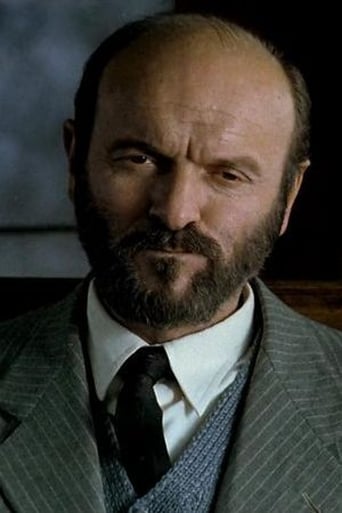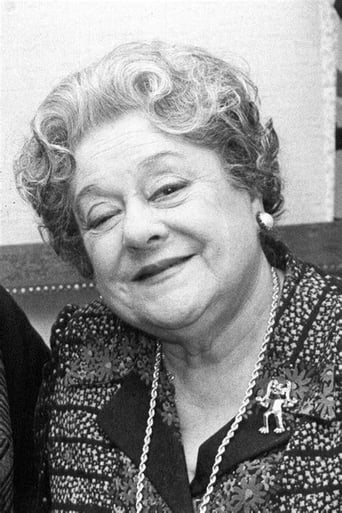Cubussoli
Very very predictable, including the post credit scene !!!
BootDigest
Such a frustrating disappointment
Matialth
Good concept, poorly executed.
Howard Schumann
Unless there are impenetrable barriers, most young children love their parents unconditionally, perceiving them as all knowing and all loving. Of course, with growing up often comes a realization that the parents you put on a pedestal are just human beings with flaws, some small, some big. This realization comes reluctantly to Estrella in Victor Erice's poignant 1983 film, El Sur (The South, the beautiful story of the relationship of a daughter and her father, one of only three feature films Erice made in forty years, each one a masterpiece.Based on the novella of the same name by Adelaida Garcia Morales, the story takes place in the context of post–civil war Spain. Narrated powerfully by fifteen-year-old Estrella, the film is composed of memories and fantasies as she seeks to make sense of the painful events of her childhood. Shot by cinematographer José Luis Alcaine using only natural light, the opening conveys a feeling of an enchanted world. In the first frame, Estrella (Iciar Bollain) awakens in a darkened room with the light focusing only on her. The camera zooms to her hands as she discovers a small box under her pillow containing the pendant her father used as a divining rod.In her memory, it is the symbol of her father's power that he once used to guess her sex by holding the pendant over her mother's stomach. In the background, we hear a dog barking and Estrella's mother (Lola Cardona) calling for her husband Agustín (Omero Antonutti), but he is nowhere to be found and Estrella knows that he is not coming back. It is only then that the camera moves to her face where a tear is visible. El Sur then flashes back seven years when eight-year-old Estrella, sensitively portrayed by Sonsoles Aranguren, and her parents have moved from the south of Spain and are traveling by train to the north where Agustin has found a job as a doctor in a local hospital.Estrella's insights into events taking place around her are mature beyond her age. "I grew up more or less like everyone else," she says, getting used to being alone and not thinking too much about happiness." When she is older, her father, whom she idolizes, instructs her in the art of divination and she looks at it as a transfer of a supernatural gift. The slow-developing story reveals the shift in Estrella's perception both of her father and of her country. As she begins to learn more about the war that divided her family and her country, her view of the south as the mythical place depicted in postcards and movies, begins to unravel.To Estrella, her father's life in the south has always been a mystery and she questions Milagros (Rafaela Aparicio), her father's former governess who is visiting their house, about his life. The governess tells her of the rift her father had with his own father who favored Franco in the Spanish Civil War, and how unhappy his life had been when he was growing up. Estrella's discovery of Agustin's devotion to the starlet Irene Rios (Aurore Clément) whose films played at the local theater is even more unsettling, however, as is the matter of his continuing relationship with a mysterious woman in the south.The nature of the circumstances that are revealed in the film, however, do not prepare us sufficiently for the events that follow. Forced to curtail production before completion, Erice would have traced Estrella's journey back to the south to uncover the reality of her father's despair, but lack of funding did not permit this and the film, which Erice claims would have become much lighter in tone, was never finished. Although, because of the film's incompleteness, character motivations are murky, El Sur is still a brilliant and haunting work of art. A timeless film of symbol and myth, it was voted the sixth best Spanish film in the 1996 Spanish cinema centenary.
zetes
I don't really keep a list of most-wanted-but-unavailable movies, but, if I did, this film, the second of only three features of Victor Erice, director of Spirit of the Beehive, would have been very high on it. It is, to understate, far from a disappointment. Very much a sister film to Spirit, it's about a woman, Estrella, who as a narrator remains off screen, reminiscing about her relationship with her father (Omero Antonutti). As a child (where she is played by Sonsoles Aranguren), she worshiped the man. Behind the perceived god, though, he was quite a sad man, haunted by history. Estrella discovers a particular secret which dominates the man's mind. In her teenage years (where she's played by Iciar Bollain), that secret comes back. This is an achingly gorgeous film, very quiet and largely shot in shadowy, cold sunlight. The images are every bit as gorgeous as Spirit's, and the story is, too. Criterion apparently owns the rights to this. Many of the films that are only streaming on Hulu will never see a home video release, but they really should put this one out there. It's a masterpiece.
puteolum
There's no doubt that Erice is one of the best Spanish directors ever, and each film he's made is an absolute masterpiece. I shall not comment anything about the plot, the acting, not even about cinematography. I'm writing this post in order to give IMDb's users a little information which, I think, may solve some questions about this film (why its plot is so "episodic"? why the DVD copy seems a low-quality one? etc): well, actually "El Sur" is an unfinished work! The production was stopped due to money trouble, and Erice wasn't able to complete his film with Estrella's travel to the mythical South named in the title. Many years later, Erice himself explained this film's odyssey in a recorded interview for the Spanish TV.
jsorribe
After "The Spirit of the Beehive" Erice retakes post-civil war Spain through the eyes of a child (and later a teenager in this case). Not only the director recreates admirably the atmosphere of those gloomy years in my country, but also succeeds in showing the relationship between a bitter, low-spirited father and his vital daughter. Wonderful cinematography and sets also contribute to create a masterwork in which every camera move, every dialogue line and every fade constitute a brilliant piece of its own. An absolute must for all cinema lovers.





